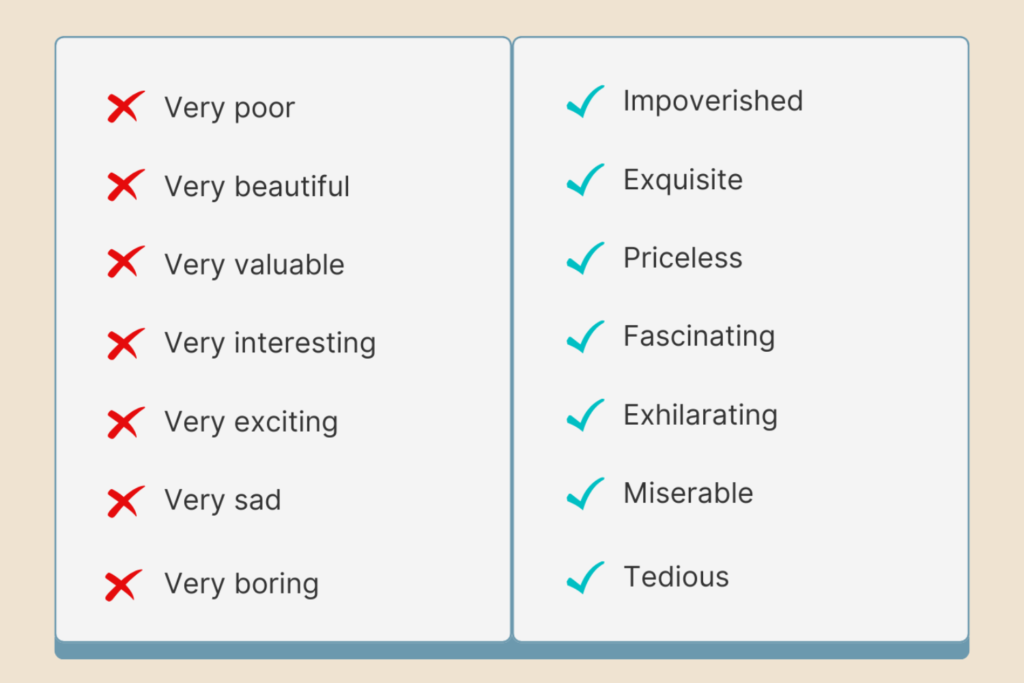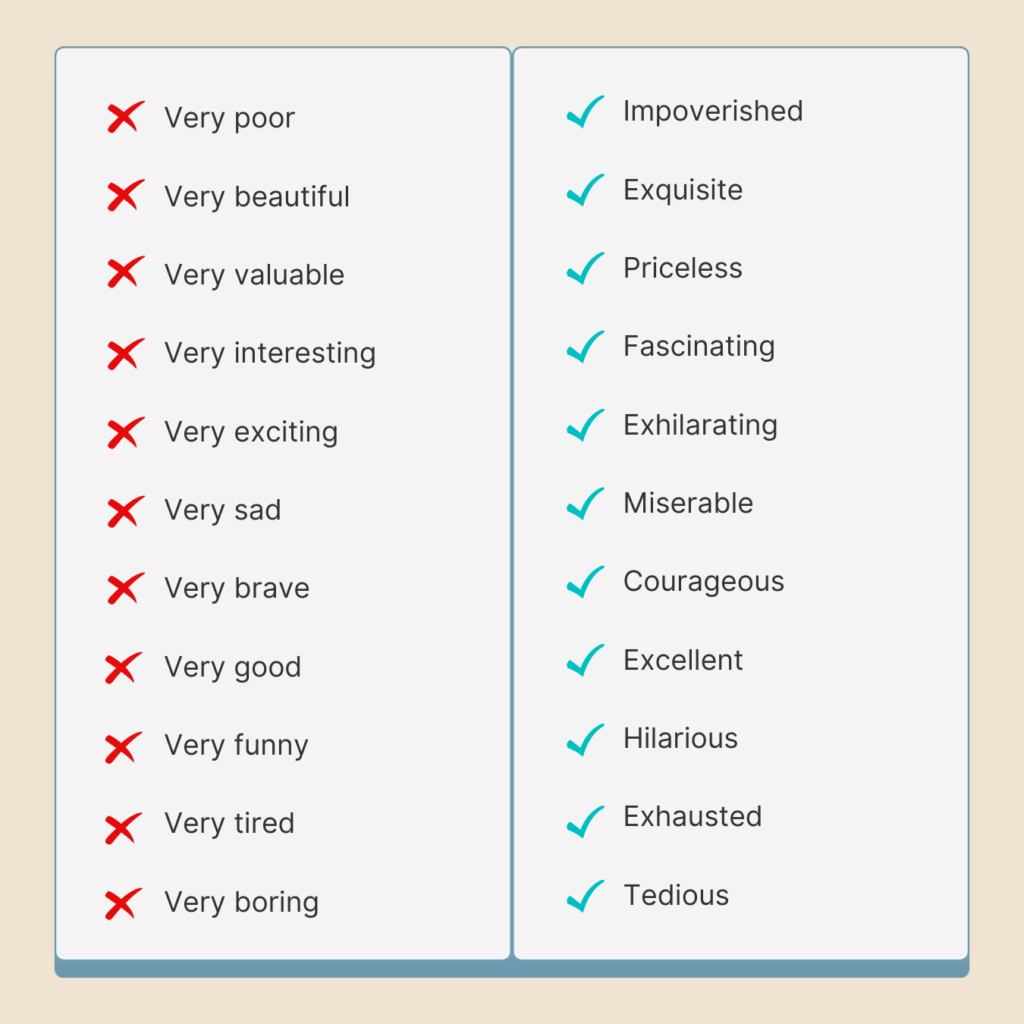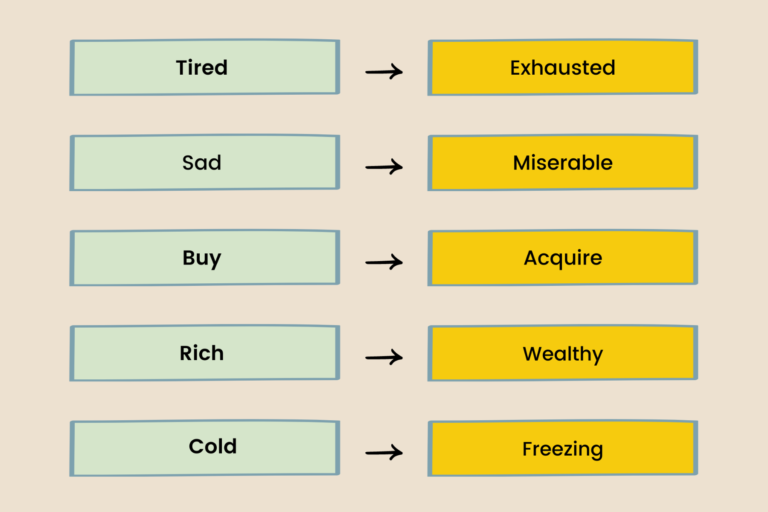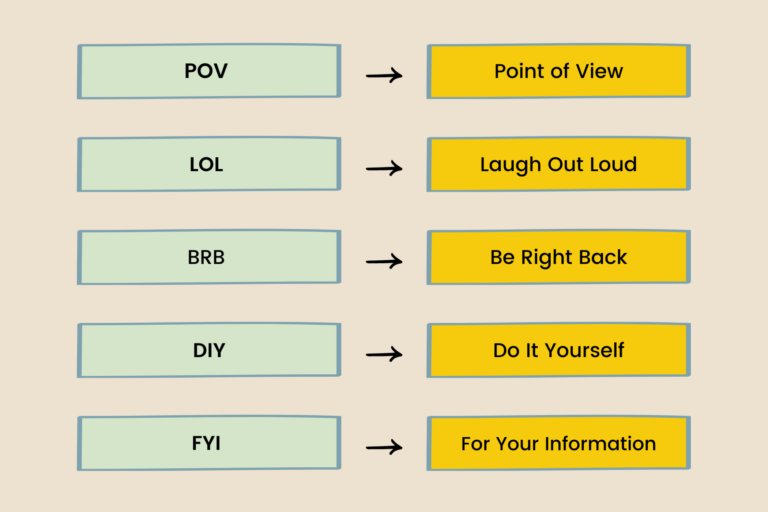
We’ve all done it—used the word “very” to emphasize how we feel or describe something in detail. It’s easy, right? But overusing “very” can make both your writing and speaking sound repetitive and less impactful. As someone who has spent years refining my communication skills, I’ve observed firsthand how relying on “very” can weaken our message. While it might seem like a quick fix to add emphasis—”very tired,” “very happy,” “very important”—this common habit often dilutes the impact of our words.
Fortunately, there are stronger, more precise words that can elevate your speech and writing, making them more dynamic and compelling. Whether you’re giving a presentation, writing an email, or just chatting with friends, a rich vocabulary helps you express yourself more clearly and confidently. It demonstrates that you know exactly what you want to say. In this post, you’ll discover simple yet effective alternatives to “very” that will make your speech and writing more engaging and sophisticated.
Why You Should Avoid “Very”
Using “very” often makes sentences sound weak or vague. By replacing it with stronger words, you can convey the same idea more vividly. It’s all about making your language more concise and compelling. The more you practice replacing “very” with stronger words, the more natural it will become. Start with your daily conversations and writing, and soon, these powerful words will be a part of your vocabulary.
Also Read: 7 Skills You Need To Know To Thrive In The Age of AI
How Replacing ‘Very’ Improves Your Communication
When you use precise words, it shows that you have a good grasp of the language, making your speech or writing more engaging. It’s a small change that leaves a lasting impression. Replacing “very” is just the beginning. Expanding your vocabulary helps you communicate more effectively in any situation.
Common ‘Very’ Phrases and Their Replacements
Here are some more common phrases using “very” along with their stronger replacements:
- Very tired → Exhausted
- Very angry → Furious
- Very good → Excellent
- Very poor → Impoverished
- Very brave → Courageous
- Very old → Ancient
- Very funny → Hilarious
- Very strong → Powerful
- Very beautiful → Exquisite
- Very sad → Miserable
- Very small → Tiny
- Very clever → Intelligent
- Very interesting → Fascinating
- Very friendly → Amicable
- Very boring → Tedious
- Very difficult → Arduous
- Very exciting → Exhilarating
- Very upset → Distraught
- Very big → Massive
- Very wet → Drenched
- Very clean → Immaculate
- Very successful → Prosperous
- Very young → Youthful
- Very noisy → Boisterous
- Very weak → Feeble
- Very fast → Swift
- Very slow → Sluggish
- Very serious → Grave
- Very bright → Radiant
- Very busy → Swamped
- Very careful → Cautious
- Very colorful → Vibrant
- Very confused → perplexed
- Very lovely → Adorable
- Very scared → Petrified

- Very worried → Distressed
- Very crowded → Bustling
- Very sweet → Thoughtful
- Very creative → Innovative
- Very perfect → Flawless
- Very tight → Constricting
- Very dirty → Filthy
- Very new → Novel
- Very hot → Scorching
- Very warm → Balmy
- Very cold → Icy
- Very loud → Thunderous
- Very quiet → Silent
- Very dark → Gloomy
- Very rich → Wealthy
- Very old → Elderly
- Very short → Petite
- Very thick → Dense
- Very safe → Secure
- Very dangerous → Perilous
- Very hungry → Famished
- Very thirsty → Parched
- Very simple → Basic
- Very complex → Intricate
- Very high → Elevated
- Very difficult → Challenging
- Very low → Subdued
- Very important → Vital
- Very afraid → Terrified
- Very confident → Assured
- Very content → Satisfied
- Very detailed → Thorough
- Very effective → Efficient
- Very expensive → Costly
- Very full → Stuffed
- Very generous → Charitable
- Very harsh → Severe
- Very unusual → Uncommon
- Very valuable → Priceless
- Very high → Towering
- Very easy → Effortless
- Very curious → Inquisitive
Related Post: 7 Free AI Courses in 2024 with Certificates
Final Thoughts
So, there you have it! By replacing the overused word “very” with more specific and vivid alternatives, you can instantly elevate your communication. It’s amazing how a few carefully chosen words can make your writing and speaking more engaging and impactful. Whether you’re aiming to sound more professional in a report, add flair to a story, or simply express yourself more clearly in everyday conversations, these alternatives can make a big difference.
Remember, language is all about context. Some of these phrases might have different meanings depending on the situation. For example, “very bright” can mean “intelligent” when referring to someone’s intellect, but it means “radiant” when describing light. Choosing the right word depends on what you’re trying to convey.
Don’t be afraid to experiment and play with your vocabulary. The more you practice using these stronger words, the more naturally they’ll come to you. It’s all about finding the right balance and making your language work for you. So next time you reach for “very,” think about whether one of these alternatives might do the job better. Your audience—whether they’re readers, listeners, or just your friends—will appreciate the extra effort you put into making your words truly shine.


